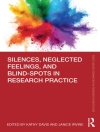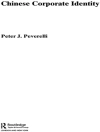Misinformation is one of the twenty-first century’s greatest challenges, a peril to democracy, peace, science, and public health. Yet we lack a clear understanding of what makes misinformation so potent and why it can spread so rapidly. In Falsehoods Fly, a leading cognitive scientist and philosopher offers a new framework for recognizing and countering misleading claims by exploring the ways that information works—and breaks down.
Paul Thagard examines the dangers of misinformation on COVID-19, climate change, conspiracy theories, inequality, and the Russian invasion of Ukraine. He argues that effective responses to these problems require understanding how information is generated and spread. Bringing together empirical findings about the psychological and social mechanisms that drive cognitive errors with philosophical accounts of critical thinking, Thagard develops an innovative theory of how we gain information. Grasping how the generation and transmission of knowledge can fail helps us find ways to repair it and provides tools for converting misinformation into facts. Offering a deep and rich account of the nature and workings of information, Falsehoods Fly provides practical, concrete strategies to stop the creation and spread of misinformation.
Mục lục
Preface
Acknowledgments
1. Lies Kill: The Perils of Misinformation
2. Information and Misinformation: How They Work
3. Believing What You Want: Motivated Reasoning, Emotion, and Identity
4. Plagues: COVID-19 and Medical Misinformation
5. Storms: Climate Change and Scientific Misinformation
6. Plots: Conspiracy Theories and Political Misinformation
7. Evils: Inequality and Social Misinformation
8. Misinformation Self-Defense: A Manual Illustrated by the Russia-Ukraine War
9. Reality Rescued: Beyond Post-Truth
Glossary
Notes
Bibliography
Index
Giới thiệu về tác giả
Paul Thagard is distinguished professor emeritus of philosophy at the University of Waterloo and fellow of the Royal Society of Canada, the Cognitive Science Society, and the Association for Psychological Science. His books include
Bots and Beasts: What Makes Machines, Animals, and People Smart? (2021) and
Balance: How It Works and What It Means (Columbia, 2022).












